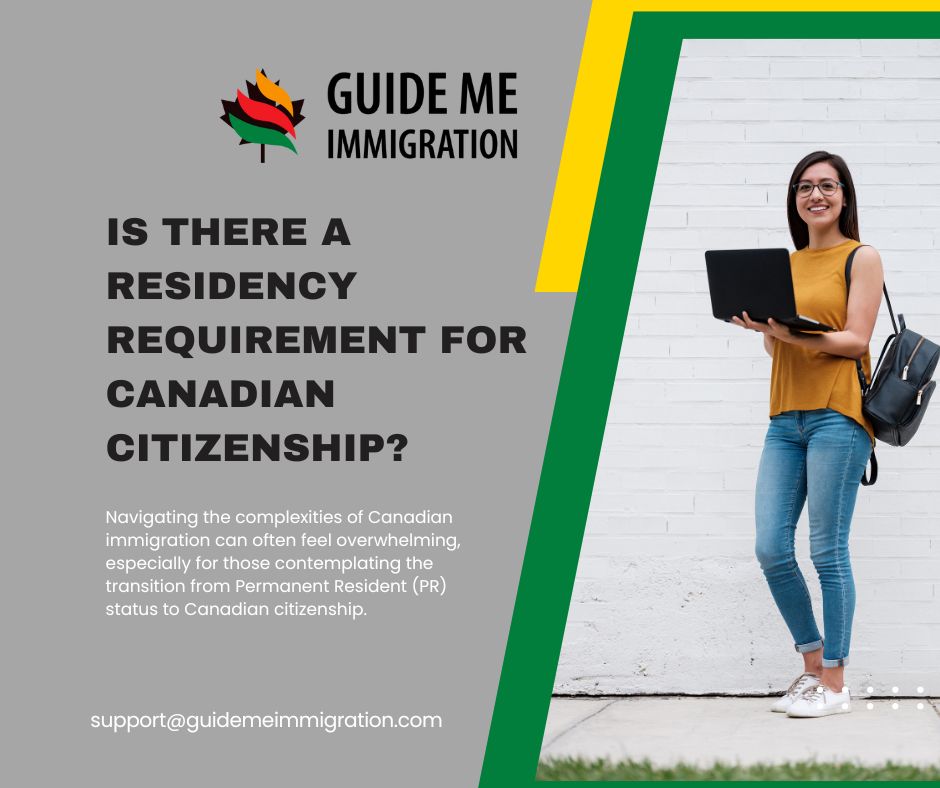Is There a Residency Requirement for Canadian Citizenship?
Navigating the complexities of Canadian immigration can often feel overwhelming, especially for those contemplating the transition from Permanent Resident (PR) status to Canadian citizenship. One key question many potential citizens have is: Is there a residency requirement for Canadian citizenship? In this blog post, we’ll explore the nuances of residency requirements, the implications for PR status, and what it means to be a Canadian citizen.
Understanding Permanent Residency in Canada
To maintain your PR status in Canada, you must meet specific residency requirements. According to Immigration, Refugees and Citizenship Canada (IRCC), a permanent resident must reside in Canada for at least 730 days (or two years) within the last five years. Importantly, these 730 days do not have to be continuous, allowing for some flexibility in your travel plans.
Conditions for Counting Time Abroad
Certain circumstances may allow time spent outside of Canada to count toward this residency requirement. For instance, if you work for a Canadian business or organization abroad, or if you accompany your spouse or common-law partner on their travels, that time may be included. Additionally, dependent children who are PRs may also have their time counted if they are traveling with their parents.
For specific guidance on what counts towards your residency days, you can refer to the IRCC help center.
The Residency Requirement for Canadian Citizenship
Once you obtain Canadian citizenship, the landscape changes significantly. Unlike PR status, there are no residency requirements for Canadian citizens. This means that as a citizen, you have the freedom to travel abroad for as long as you wish without the risk of losing your citizenship status.
Key Differences Between PR and Citizenship
- Residency Requirements: PRs must reside in Canada for at least 730 days over five years; citizens face no such limitations.
- Rights and Privileges: Canadian citizens enjoy full rights, including the ability to vote and run for political office, whereas PRs do not have these rights.
- Travel Flexibility: Citizens can travel freely without the need for a Permanent Resident Travel Document (PRTD), which PRs require if their PR card is not valid during their travels.
Reasons for Revocation of Canadian Citizenship
While Canadian citizenship provides greater freedom, it is essential to understand that it is not entirely unassailable. There are specific circumstances under which citizenship can be revoked. According to IRCC, these include:
- False Representation or Misrepresentation: If an individual is found to have misrepresented themselves during the application process, they risk losing their citizenship.
- Fraud: Any fraudulent activities related to obtaining citizenship can lead to revocation.
- Concealing Material Circumstances: This may include failing to disclose important information, such as the duration of time spent in Canada.
Understanding these conditions can help applicants approach their citizenship journey with greater awareness.
The Importance of the PR Card
The PR card is crucial for any permanent resident in Canada. It serves as proof of your PR status and is necessary for re-entering Canada after travel. If you travel outside Canada and do not have a valid PR card, you must apply for a Permanent Resident Travel Document (PRTD) before you can return.
What PRs Can and Cannot Do
As a PR, you enjoy many benefits, including:
- Eligibility for most social benefits that Canadian citizens receive, such as health care and a Social Insurance Number (SIN).
- The right to live, work, or study anywhere in Canada.
- Eligibility to apply for Canadian citizenship.
- Protection under Canadian law and the Canadian Charter of Rights and Freedoms.
However, PRs are restricted from voting or running for political office and may not qualify for certain jobs requiring high-level security clearance.
Why PRs Might Lose Their Status
Several factors can lead to the loss of PR status, including:
- Non-compliance with Residency Requirements: Failing to meet the 730-day residency requirement can lead to a loss of PR status.
- Voluntary Renunciation: A PR may choose to renounce their status for personal reasons.
- Enforced Removal Order: If an individual is subject to an enforced removal order, they may lose their PR status.
- Becoming a Canadian Citizen: Upon obtaining citizenship, an individual’s PR status is no longer relevant.
Important Note
It’s crucial to remember that PRs do not automatically lose their status if their PR card expires. An official determination must be made by IRCC, which involves an inquiry or appeal process.
The Path to Canadian Citizenship
If you’re a permanent resident and considering applying for Canadian citizenship, here’s a brief overview of the steps involved:
- Determine Your Eligibility: You must meet residency requirements, be proficient in English or French (if between ages 18 and 54), and have knowledge of Canada’s history, values, institutions, and symbols.
- Gather Required Documents: This includes proof of residency, language proficiency, and any other documents specified by the IRCC.
- Submit Your Application: Once you’ve gathered your documents and filled out the application forms, submit them to IRCC along with the required fees.
- Take the Citizenship Test: If you are between 18 and 54 years old, you will need to take a test on Canadian history, culture, and government.
- Attend an Interview: You may be called for an interview to discuss your application.
- Wait for a Decision: IRCC will process your application and notify you of their decision.
- Take the Oath of Citizenship: If approved, you will attend a ceremony to take the oath, officially making you a Canadian citizen.
In summary, while permanent residents in Canada must meet specific residency requirements to maintain their status, Canadian citizens enjoy the freedom to travel without such constraints. Understanding the differences between PR and citizenship, as well as the conditions under which citizenship can be revoked, is crucial for anyone considering this significant life transition.
If you have questions or need assistance with your immigration journey, don’t hesitate to reach out to Guide Me Immigration Ltd. We offer free consultations to help you understand your options and navigate the complexities of Canadian immigration. Whether you’re a PR looking to transition to citizenship or just starting your journey, we’re here to guide you every step of the way.
Visit Our Website – support@guidemeimmigration.com
#GuideMeImmigrationLtd#Canadiancitizenship#Residency






